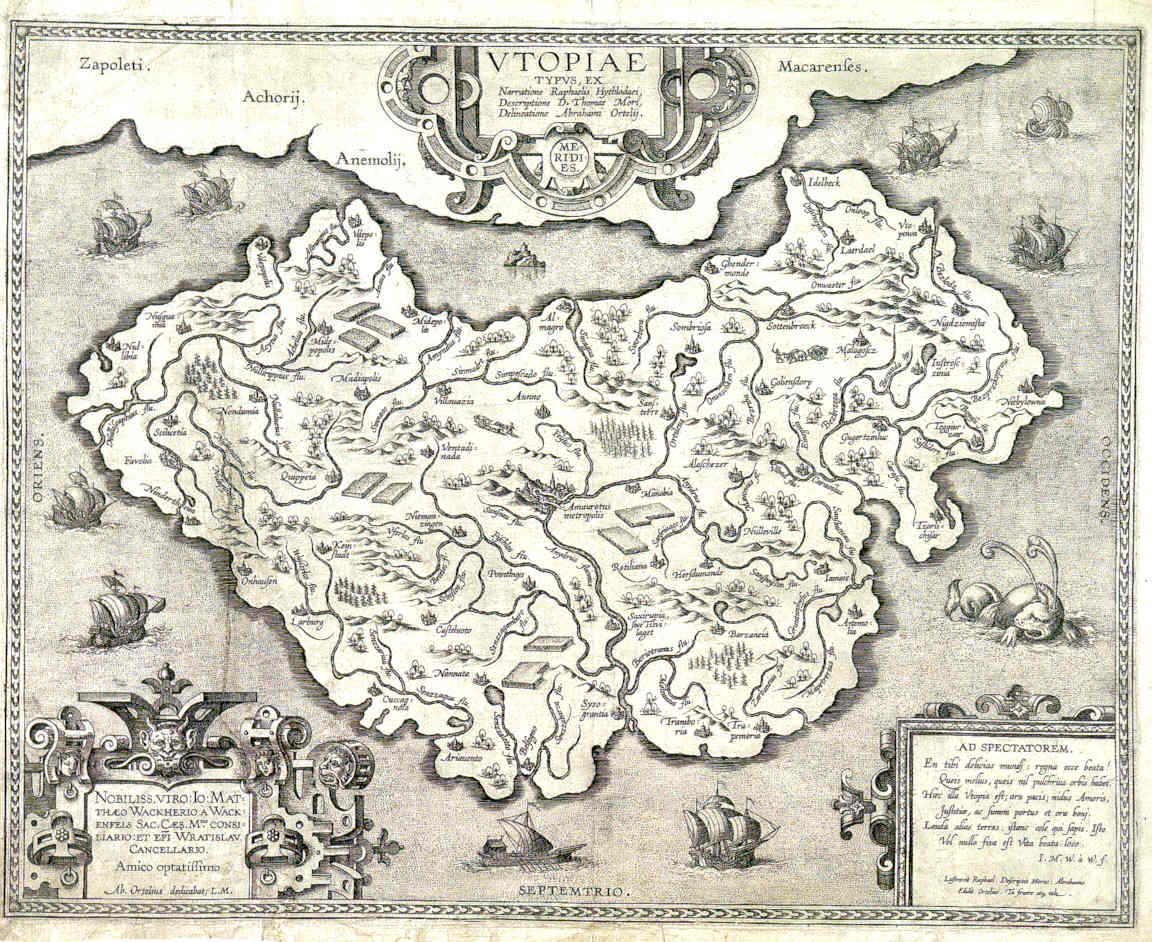 |
| Abraham Ortelius' Map of Utopia (1595) via Wikimedia |
 Utopia by Thomas More
Utopia by Thomas MoreMy rating: 3 of 5 stars
Yet another of the books for which I could provide a synopsis but have never read cover to cover (until now). There is much to Sir Thomas More's communist (note my use of a lowercase "c") essay that surprised me. One can see the little twists to insure against More being burned at the stake (the Utopians were ready to receive Christ as they had more or less self-discovered Christ's communal teachings - but it didn't prevent him having his head cut off for refusing to succumb to its antithesis) along with it being presented in the form of a dialogue in Book I (as per Plato, Machiavelli, et al.). A few things made me think it might be more socialist than communist, if one accepts that communism attempts to abolish the state in order to achieve equality, whereas socialism aspires to the same aim but through governmental or formal institutional arrangements. The founder of Utopia, "King" Utopus, suggested the limitations of More's imagination, and had me thinking of modern Bhutan. But the notes on the translation point out that Ralph Robinson, the translator, had added his own interpretations of the original Latin that added kings and princes where none was intended. The introduction by Richard Manus explains the reasons for keeping the original translation and for that I was pleased. The focus on religion and the idea of bondsman doing all the unpalatable work for the commonwealth brings to the fore many of the problems of communism in it twentieth century practice. Aside from the obvious problems where the dictatorship of the proletariat has never ended in its practical forms, communism has never really obtained that level of freedom, particularly in terms of occupations or individuals becoming "Renaissance" men or women, whereas, and despite its reliance on the "Metroplesque" underground to make it practicable, this is achieved, along with a six-hour work day, in Utopia. The interesting use of mercenaries in warfare and foreign relations and the stigmas attached to precious metals and pearls (for bondsmen and children respectively) point to the absurdity of surviving ideas about value and money. The use of Plato suggests a reinvention of the Commonwealth of centuries before, whereas Jonathan Swift, too, draws on the folk tradition to protect himself from his own political commentary, albeit over a century later, but relying on similarly strange peoples with startlingly homogeneous cultures. But, taken in its times, More seems to have done a good deal of the theorising for Marx to arrive and merely iron out the shortcomings. Despite my familiarity with the work, there is much fruit to be harvested by taking the time to read thoroughly what one has previously learnt second-hand. Yet I am pleased that our education system is remarkable in that, despite its secondary-source nature, the synopses I (at least) have received are true to form, if otherwise lacking in detail.
View all my reviews
 Donate
Donate






No comments
Post a Comment